BLACK PERINATAL HEALTH BLACK PERINATAL HEALTH












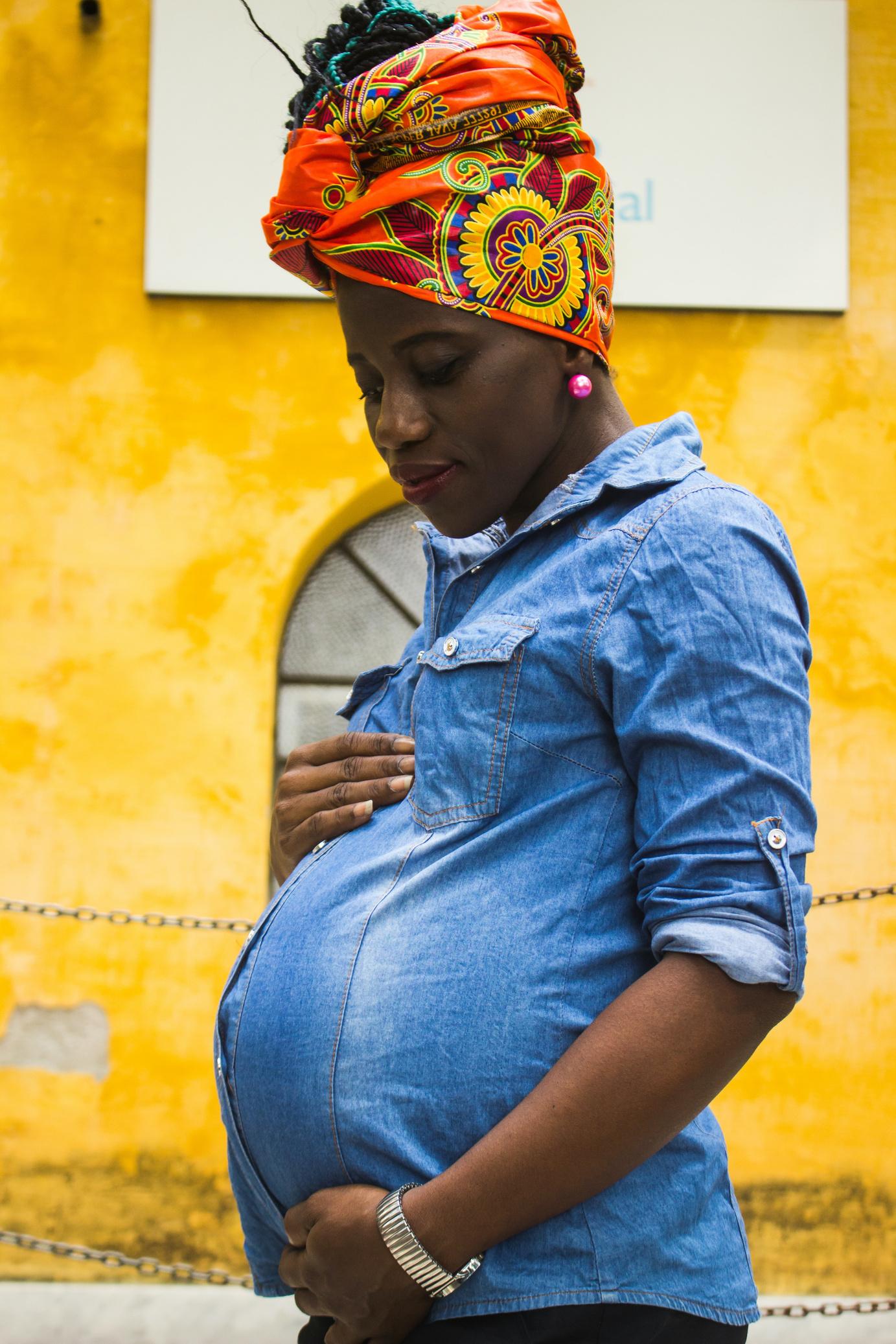














Surge Reproductive Justice is dedicated to ending reproductive oppression for all individuals, with a particular focus on centering the experiences of Black women, women of color, and queer and trans people of color We employ a grassroots approach to foster a movement from the bottom up Our work includes several key initiatives, including political education, community directed policy making, community engagement, community centered research processes, community organizing, and cultural organizing Our work is driven and led by community members who are impacted by the issues we prioritize.

Surge's values foster our strategies for advancing reproductive justice and ultimately lead us to our long-term goal of self-determination and bodily autonomy in the birthing space Our values include:

Access
Engagement
Freedom
Human Dignity
Centering
Safety
Building Power
“Surge Reproductive Justice mobilizes communities to build a world where all people can make powerful, self-determined choices for their bodies and the future of their families and communities. Our work centers Black women, women of color, and queer and trans people of color for a movement that rises from the bottom up. ”
At Surge Reproductive Justice, we deeply value inclusivity in our work and actively oppose transphobia while affirming the importance of embracing diverse identities and experiences.


By using inclusive language, such as birthing people and Black perinatal health crisis, we acknowledge everyone ' s experiences and make sure no one gets left behind in this movement we are building together towards liberation from all the isms. We acknowledge that gender is a tool of colonization, used to hold power over us

Internalized inferiority is real and can show up in a lot of ways. It can definitely show up as one defaulting to the gender binary we have been fed to believe is the only truth When in reality we know the gender binary was created to support and uphold capitalistic patriarchy and white supremacy.
We understand that inclusive language is an ongoing process, continually evolving alongside our understanding of gender and identities As an organization, we remain committed to remaining informed, actively engaging in conversations, and adapting our language to best reflect the needs and experiences of all individuals involved.

Perinatal health encompasses the physical, emotional, mental, and social well-being of individuals and families during pregnancy, childbirth, and the postpartum period.
The state of Black perinatal health in the United States represents a deeply concerning crisis that requires urgent attention. Black American birthing people face alarming disparities and are three to four times more likely to die from pregnancy-related causes compared to their White counterparts. It is essential to emphasize that these disparities are not a result of inherent deficiencies in Black bodies, but rather the consequence of systemic and interpersonal racism that permeates institutions and systems, inflicting harm upon our communities, birthing people, and their babies.
Regrettably, the United States holds the highest rate of perinatal mortality among developed countries, and the burden of these failures disproportionately falls on Black communities Approximately 80% of perinatal deaths are preventable, emphasizing the urgent need for systemic changes and policies to alleviate the burden from individuals and address the shortcomings of existing institutions and systems.
Research has revealed a striking finding: when Black babies are cared for by Black physicians, their risk of mortality is halved compared to when they receive care from White doctors. Racism and bias are real and have real impacts.
In the absence of comprehensive systemic changes and policies that address the root causes of racial disparities in perinatal health, community has organized to build a vision for health justice. Surge Reproductive Justice proudly aligns itself with this grassroots movement, both at the local and national levels, working tirelessly to confront and dismantle the systemic barriers that perpetuate racial disparities in perinatal health.
Black birthing people are more likely to die from pregnancy-related causes compared to their White counterparts
3-4X
Black birthing people died at
2.5X
the rate of non-Hispanic White people from pregnancy-associated deaths.

The Black Perinatal Health Campaign was a powerful opportunity to hear what it means to be pregnant and/or give birth in King County, Washington. Through in-depth 1-1 interviews, this campaign offered a transformative method to identify needs and holistic solutions that uplift and support Black birthing/pregnant individuals, families, and the dedicated birth workers who stand by their side.
Community came to us about creating space for Black folks to organize and lead on the issue of Black perinatal health. This call came at a time when many non-Black organizations were receiving funding to support Black birthing people and workers, despite lacking communityled initiatives Recognizing this gap, the Black Perinatal Health Campaign was born as a community-requested and -led endeavor, with the primary goal of bringing community together to analyze power dynamics and understand how our people are exploited and underserved.
Interviews were the first step of community's big picture strategy as we brought people together to build a vision for health justice Nevertheless, this campaign's focus extends beyond individual stories It aims to uncover patterns, connect the dots, and demonstrate that the issues at hand are systemic rather than a deficiency within the bodies of Black individuals. By shedding light on these systemic issues, the campaign seeks to empower community members to harness their own power and actively work towards positive change.
At its core, this campaign is a celebration of the resilience and wisdom within our community It recognizes the inherent power and knowledge embedded in our community and seeks to harness these invaluable assets to create positive change in perinatal health outcomes. By fostering unity and collaboration, we aim to nurture a support network that champions the well-being, autonomy, and self-determination of Black birthing and pregnant people.
Within the Black Perinatal Health Campaign, we uplifted and centered the voices, experiences, and needs of Black individuals Through fostering a space where stories are honored and amplified, we established the groundwork necessary to build powerful strategies and interventions that are rooted in our culture, traditions, and history.
As a community-centered campaign, we understand that achieving true equity in perinatal health requires dismantling systemic injustices that perpetuate disparities We stand as advocates, boldly challenging institutions, policies, and practices that undermine the wellbeing of Black families in King County. By amplifying our collective voices and demanding transformative change, we forge a path towards a perinatal healthcare system that truly serves and honors our people.
After community came to us about wanting to do work on Black-led solutions and building community around Black perinatal health, the Seattle Foundation released a grant for Blackled systems and policy change in the fall of 2020 This grant opportunity aligned with the Black Perinatal Campaign's objectives.
Recognizing the potential of this grant, we formed a partnership application with Families of Color Seattle and a collective of Black birth workers. Together, we presented a cohesive vision for the campaign, emphasizing the importance of base building and Black-led initiatives to identify the critical needs for systems and policy changes
In February 2021, we received the news that our application had been successful. This greatly supported the launch of the campaign.
To organize and bring community together, creating a space for collective analysis of power dynamics and the identification of patterns and themes that reveal systemic issues surrounding Black perinatal health
To explore the experiences, challenges, and needs of Black birthing/pregnant individuals and birth workers within the perinatal period through in-depth interviews, aiming to generate insights that drive transformative change.
To generate community-informed solutions that address the barriers and disparities in perinatal care for Black birthing/pregnant individuals, centering their voices, experiences, and needs to ensure the solutions are culturally responsive and inclusive
To contribute to existing knowledge on the Black perinatal health crisis impacting our country, state, and county by generating valuable data and insights through interviews, supporting evidence-based discussions and informed solutions.
The process of recruiting interviewers, or trusted community messengers, for our campaign was rooted in the relationships and networks we had already established within community. Our work on Medicaid reimbursement for doulas through House Bill 1881 and the involvement of Black birth workers coming to Surge laid the groundwork for identifying community members who would be a perfect fit for these roles
In February 2021, we launched an application process for trusted community messengers. The application form asked about the type of birth work they were involved in, whether they were current birth workers, their experience in the field, an estimate of the number of Black individuals they served, and their vision for birth justice We aligned the questions with the values and principles held at Surge, ensuring that applicants shared our commitment to those values
We were fortunate that the number of applicants was just right, allowing us to forego a lengthy selection process. Many of these individuals were already known to us through our existing relationships within the community. This relational approach to recruitment was important because birth workers have their own clients and connections within the community By tapping into these existing relationships, we were able to establish trust and authenticity from the outset. Trusted community messengers received a stipend for their work.
One of the significant reasons we specifically sought out trusted community messengers who were Black birth workers was because we anticipated that birth stories would be shared during the interviews It was crucial to have individuals who could recognize instances of racism or harm within the birthing process.
 Participant and Interviewer Recruitment
Interviews with Trusted Community Messengers
Participant and Interviewer Recruitment
Interviews with Trusted Community Messengers
Black birth workers, with their extensive experience and perspective, could identify and call out harmful practices and situations that individuals might not even realize they had experienced. We wanted the process to be relational.


The training provided to the seven trusted community messengers was comprehensive and geared towards equipping them with the necessary skills and knowledge. They attended workshops on undoing institutional racism, reproductive justice, and participatory action research, and they were part of developing effective interview questions and outreach strategies. These trainings enabled them to approach the interviews with a deeper understanding of systemic racism, oppression, and the importance of centering reproductive justice principles
100% Black/African American
100% Current King County Resident
100% Current Birth Worker
Total of 13 years of birth working experience among the 7 trusted community messengers
I ultimately want to serve my people by being the person I never had during my birthing experiences and this is the perfect opportunity for a starting point.
Birth work is a part of my spiritual and ancestral calling. I became a birth worker to honor my calling, my mothers, my children (birthed and deceased) and all of the Black women who have nurtured and helped me care for my family. I love Black people, and I view birth as a sacred rites of passage I am a healer and an empath, and have always walked between the spiritual and natural world. My healing work is interconnected and offered to uplift the community I love and come from.
Leveraging the power of social media, we collaborated with Families of Color Seattle to reach out to individuals and families in community. By tapping into the extensive networks of birth workers who have established relationships with community members, we were able to engage with a broad range of individuals. This approach not only facilitated access to a diverse pool of participants but also helped create a sense of trust and familiarity, encouraging community members to actively participate in the campaign

After registering for interviews, we made an effort to match participants with specific trusted community messengers if they indicated they had been referred by someone in particular. This matching process helped to foster a sense of familiarity and trust during the interviews.

In cases where interviewees spoke a language other than English, the trusted community messenger who had experience working with translators was assigned to conduct the interview, ensuring effective communication and understanding.
The trusted community messengers scheduled interviews and used the provided interview question guide to direct the conversation. The interviews were conducted over Zoom The interviews were recorded using the Zoom recording feature to ensure accuracy and capture the nuances of the conversations These recordings proved valuable for further analysis and reference. To facilitate analysis and documentation, the recorded interviews were transcribed using the Zoom transcription feature. This transcription process enabled us to have a written record of the interviews, making it easier to review and extract key insights and themes from the discussions
Where did you have your baby? And was it where you planned? What was your experience like there?
Did you have support? If so, who supported you and how did they support you? How would you describe the relationship between you and your provider? Did they offer you an interpreter and offer information in your primary language? Did they use visual aids?
What were your financial, medical, and familial needs during and after your pregnancy? How were they met or not met during/after your pregnancy?
(Examples provided for clarity, such as paternity leave, paid family leave, WIC, TANF, SNAP, CHIP, childcare, car seats, and Medicaid/Medicare)
How did racism and anti-blackness impact your pregnancy and birth, if any? What did mental health support look like for you during and after pregnancy?
Provide an example of perinatal mood and anxiety disorders by explaining the emotions that they may have experienced during and after pregnancy. What would you envision for Black-led community support to promote healthy pregnancies and outcomes?

These interview questions were designed to elicit detailed responses and capture the participants' experiences, perceptions, and needs within the perinatal context, in alignment with Surge’s long-term goal of selfdetermination and bodily autonomy in the birthing space.
The interviewers, as trusted community messengers, facilitated a safe and supportive environment for the participants to share their stories openly and honestly. Through these interviews, the study aimed to gather rich qualitative data that will contribute to the understanding of Black perinatal health disparities and potential solutions in King County and broadly.
As part of the Black Perinatal Health Campaign, individuals who participated in the interviews were invited to attend a birth simulation activity led by Rokea Jones, owner of Mama’s Wellness and Advocacy LLC. During this activity, participants took on different roles such as doctors, nurses, and birthing individuals, engaging in problem-solving exercises aimed at achieving positive birth outcomes
The birth simulation activity provided participants with a unique opportunity to gain a more comprehensive understanding of the various factors that impact birth outcomes. Through the simulation, participants were able to zoom out and observe how biases, structural racism*, and prejudice can influence the birthing experience and ultimately affect outcomes
By actively participating in the birth simulation event, those who had previously taken part in the interviews had the chance to deepen their understanding of the complexities surrounding birth and the importance of addressing systemic issues. This immersive experience broadened their perspectives, allowing them to connect the dots between their individual experiences and the broader societal context
*a system that distributed unequal access to resources and opportunity

The researchers worked to ensure the confidentiality and integrity of the collected data throughout the research process Access to data was restricted to authorized, necessary members of the research team
All data, including interview recordings, transcripts, and associated documentation, were securely stored in password protected online team drives.

Names and contact information were collected alongside the responses during the data collection phase. However, during the analysis phase, the research team employed a coding system to deidentify the data. This step ensured that the analysis was conducted using anonymized data, maintaining the confidentiality of participants' identities
Following the initial coding analysis, where themes and patterns were identified, data was detached from personally identifiable information. This deidentified data was used for subsequent analysis, ensuring that the findings and conclusions were based solely on the content of the interviews, rather than individual identities.
Th d d f f d d h l
The coding and theming of the interviews conducted during the Black Perinatal Health Campaign involved a process that evolved over time. Initially, it was expected that the individuals who conducted the interviews would also be responsible for coding and theming. However, due to internal conflicts, the campaign was put on pause These challenges are discussed in later sections of the report During this time, Surge engaged in conversations with the community about their vision to continue the campaign and move forward.

Following community's direction, a new iteration of peer coders was formed. This group included one person who had been part of the previous iteration as a trusted community messenger, one former birth justice organizer at Surge, one person who participated as an interviewee and remained connected and engaged, one person who had attended Black community cookouts and remained involved, and another person who had been involved in the Doulas 4 All coalition.
It's important to note that only three out of the five individuals involved in the coding process were part of the initial iteration of the Black Perinatal Health Campaign Furthermore, only two of the three individuals were trusted community messengers or staff members at Surge Reproductive Justice. The selection process for the coders relied on relationships and finding individuals who were dedicated to the campaign's vision and goals.
There was some overlap between the individuals who conducted the interviews and those involved in the coding process While the number of people involved in coding was smaller, efforts were made to ensure diverse perspectives and experiences were represented within the coding team.
The coding and thematic analysis process used in this study aimed to identify and analyze key themes and patterns from the interview data The following steps were followed:
Familiarization: The coders engaged in multiple readings or viewings of the interviews to gain a deep understanding of the content and to familiarize themselves with the stories and experiences shared by the participants.
Initial Note-Taking: After each reading or viewing, the coders took brief notes on what stood out to them These notes served as initial impressions and helped capture the salient points and memorable aspects of the interviews
Core Takeaways: During subsequent readings or viewings, the coders focused on extracting the core takeaways from the interviews. They identified the main themes that emerged from the stories and experiences shared by the participants. For each theme, they also noted the underlying situations or contexts and the reasons why the participants shared those specific stories
Theme Development: The coders analyzed the extracted themes, considering their relevance to the larger research objectives. They looked for connections and patterns among the themes, seeking to identify overarching, umbrella themes related to the "ISMS" (Intersectionality, Social Justice, Marginalization, and Stigma). These umbrella themes represented higher-level concepts that encompassed multiple specific themes and reflected the influence of classism, racism, sexism, and other forms of oppression
Iterative Analysis: Designated evaluators took charge of the next section as they engaged in iterative discussions and reflections to refine and validate the identified themes. Quality checks were conducted by referencing the original interview data alongside coders’ notes to ensure the accuracy and comprehensiveness of the coding and thematic analysis.
Data Synthesis: Finally, evaluators synthesized the identified themes and overarching umbrella themes, supported by illustrative quotes or excerpts from the interviews This synthesis provided a comprehensive understanding of the participants' experiences, challenges, and perceptions related to perinatal care and the influences of intersectional social inequalities.
The coding and thematic analysis process aimed to capture the nuances of the interview data while identifying common patterns and themes across participants It allowed for a deep exploration of the experiences and perspectives of Black birthing/pregnant individuals and birth workers in King County.
The study involved a total of 30 participants who were interviewed. Initially, 50 people had signed up for the study, but due to various reasons, 20 individuals were unable to participate in the interviews
The age distribution showed that 42.9% were between 25-35 years old, 28.6% were 36-44, 17.9% were 45+, and 10.7% were 18-24. Of the participants, 72.4% identified as birthing people, 13.8% as birth workers, and 13 8% as both The majority (75 9%) identified as Black Most participants (78 6%) were from King County, while 17.9% were from Pierce County.
The participants' pregnancy and childbirth history varied among the interviewees. Approximately 24.1% of participants had experienced one pregnancy, while another 24 1% had undergone two pregnancies A significant proportion, accounting for 20.7% of the participants, had three pregnancies. Notably, there were individual cases where one participant had five pregnancies, one had no pregnancies, and one was currently pregnant
Considering the number of children, the majority of interviewed participants, amounting to 37.9%, had two children. Additionally, 31% of participants had one child, and 13.8% did not have any children.


Word clouds were crafted to serve as powerful visual representations that highlight prevalent concepts pertaining to barriers, resources, needs, dreams, and doula experiences. By aggregating and analyzing textual data from the interviews, these word clouds condense the collective wisdom and perspectives shared into a captivating display.
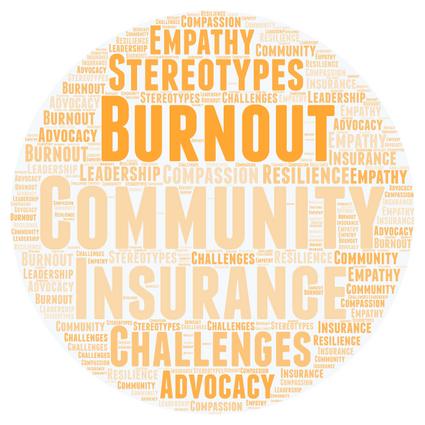



The interviews revealed a common and significant hurdle that many community members face when accessing proper care during the perinatal period: finances. We heard from numerous individuals who expressed their struggles with insurance plans or, in some cases, the absence of insurance altogether. This directly impacted their ability to access the invaluable support of doulas and limited their choices when it came to giving birth Financial constraints often force birthing people into compromised decision-making regarding their birthing location and method.
Additionally, participants emphasized how meeting other essential needs, such as housing, food, and general expenses, became increasingly difficult during pregnancy. The financial burden imposed by these necessities further hindered their ability to prioritize their own perinatal healthcare needs. It's a challenging reality that families have to juggle these pressing concerns while trying to ensure a healthy and safe perinatal experience.
Another common concern voiced by interviewees was the lack of transparency surrounding hospital bills This lack of clarity added an extra layer of stress and uncertainty, exacerbating the already strained financial situation. Understanding and navigating the complex financial implications of childbirth became a significant source of worry for birthing people, who should be focusing on their well-being and that of their baby, rather than grappling with financial intricacies
In the face of these difficulties, many participants turned to government assistance programs, such as the Supplemental Nutrition Assistance Program (SNAP) or the Special Supplemental Nutrition Program for Women, Infants, and Children (WIC) These programs provided crucial support to ensure

families had proper nutrition and overall well-being during the perinatal period However, it's important to note that while these programs addressed immediate nutritional needs, they did not fully alleviate the financial burdens associated with comprehensive perinatal care. The struggle to access comprehensive care remains a persistent challenge for many in our community.
Doulas, who are dedicated to supporting birthing people and their families throughout the perinatal journey, shared their heartfelt desire to provide care to clients from economically disadvantaged backgrounds. They recognize the immense need for their services; especially for their Black clients who often need trusted advocates to help navigate biases in the healthcare system However, doulas also acknowledged the necessity of meeting their own needs, as charity care alone cannot sustain them. Balancing their commitment to providing quality care with their personal financial realities poses a significant challenge for doulas, who want to make a meaningful difference while ensuring their own well-being.
“I am working to serve other communities that most of the time don't even respect me. ”
“The only reason why I became a doula was to make a difference in my community yet I've been so unable to do that.”
These findings emphasize that finances continue to be a substantial barrier to accessing adequate care during the perinatal period The lack of affordable insurance options, the burden of meeting basic needs, and the opacity surrounding hospital billing contribute to this challenge. It is clear that our community needs comprehensive support to bridge the financial gap, ensuring that all families can access the care they need to have a healthy and positive perinatal experience.
Our interviews uncovered a profound appreciation for the vital role that family and community support play during the perinatal period, particularly in instances where the health system fails. Partners, siblings, parents, friends, therapists, doulas, community organizations, and other sources of support emerged as essential pillars for birthing individuals, providing invaluable assistance and solidarity when navigating pregnancy complications and the birthing process. These relationships served as a vital lifeline during a time that can be physically and emotionally challenging.

Participants expressed immense gratitude for the unwavering presence and involvement of their loved ones, recognizing them as crucial sources of comfort, guidance, and reassurance. The strong support network enabled individuals to advocate for their own needs and desires, ensuring they felt heard and empowered within the medical system. These relationships fostered a sense of agency, where birthing individuals felt supported in making informed decisions that aligned with their values and preferences
However, our findings also highlighted important nuances within this theme. While some participants found solace and strength in the unwavering support of their family and community, others recognized the need to set boundaries on who is involved in the perinatal process. Many participants spoke of the desire to own their birthing experience and break generational curses in their families. They voiced a desire to surround themselves only with individuals who uplift and respect their experiences, particularly in the face of systemic issues such as racism.
Furthermore, while many participants appreciated the emotional support and advocacy they received, some expressed a desire for more assistance, particularly in the postpartum period. For some participants, having pragmatic support like childcare and assistance with domestic work was essential to their mental and emotional health. They recognized that the demands of caring for a newborn, combined with their own physical recovery, warranted additional help to alleviate feelings of overwhelm and promote well-being.
The experiences shared by participants highlight the multifaceted nature of family and community support in the perinatal period. They underscore the importance of recognizing and addressing systemic issues such as racism that cause one to need additional support in the first place, while also celebrating the strength and resilience of individuals and their support networks. It is essential to honor individual boundaries and empower birthing individuals to make decisions that align with their values, preferences, and needs.


"I think the support I would have appreciated having was post-having the baby ... just to have someone check in, you know?”
Our interviews uncovered a significant theme that revealed the intricate and diverse perspectives surrounding pain management during the perinatal period Participants shared their experiences, shedding light on three key aspects within this theme
Firstly, many expressed distress over being administered medication for pain relief against their preferences, leading to an over-medicated experience that left them feeling frustrated and disconnected from their birthing journey
Secondly, numerous participants voiced disappointment with healthcare providers who disregarded their desires for a natural, non-medicated birth, resulting in a sense of disempowerment and deprivation of their envisioned birthing experience
Lastly, some participants expressed dissatisfaction with not receiving adequate pain relief when they desired or needed it, leaving them feeling unheard, unsupported, and subjected to unnecessary suffering.
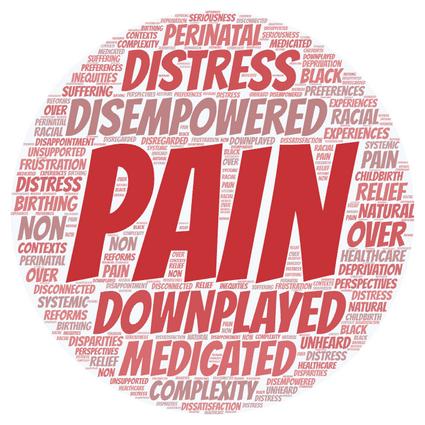
These findings align with existing literature that emphasizes the systemic issue of pain management, particularly regarding racial disparities. Research consistently highlights how Black individuals', especially Black womens ’ , pain is often not taken as seriously in various healthcare settings, including during the perinatal period. The experiences shared by participants reflect the broader pattern of Black people's pain being disregarded during childbirth and the lack of respect providers have for Black people’s mastery of their bodies. This disparity in pain management further exacerbates existing health inequities and underscores the urgent need for comprehensive reforms within the healthcare system.

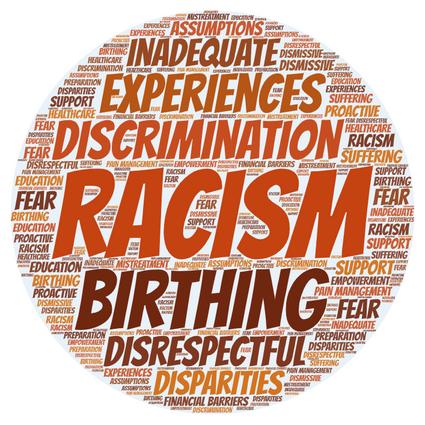
The interviews conducted for this study revealed a powerful and significant theme that highlights the pervasive influence of racism and discrimination in the birthing experiences of participants. Throughout their narratives, participants explicitly discussed the interconnectedness of these issues, illustrating the impact of racism on various aspects of care and shaping the way they approached and perceived their birthing journeys.

One prominent aspect that emerged from the interviews was the occurrence of disrespectful care marked by discriminatory behavior. Participants shared instances where healthcare providers exhibited biased attitudes, perpetuated stereotypes, or made assumptions based on their race or ethnicity. These encounters left individuals feeling marginalized, disempowered, and stripped of their agency during a vulnerable and transformative time.
Moreover, participants discussed the prevailing assumptions made by healthcare providers regarding their support systems. Participants shared instances where healthcare providers assumed they were single mothers, lacked male partners, or that the fathers weren’t supporting them during pregnancy. Single mothers or individuals lacking male partner involvement often face additional scrutiny and judgments, as these assumptions perpetuate harmful stereotypes and overlook the diverse and robust support networks that exist within their communities. Such assumptions further eroded the relationship between participants and their care team It also compounded feelings of isolation and devaluation, creating an environment that undermined their sense of worth and belonging. Experiences such as these often mar the birthing process; which should be one of care and love.
Financial barriers also emerged as a key issue, intricately linked to racism and discrimination in accessing adequate care Participants highlighted the challenges of affording quality care and navigating insurance systems, which disproportionately impact individuals from marginalized backgrounds. The financial constraints reinforced existing inequalities, denying them the opportunity to receive comprehensive and equitable care during the birthing process, thus perpetuating systemic disparities in healthcare.
Additionally, as discussed under Theme 3, participants shared experiences where racism and discrimination were intertwined with pain management Pain was nuanced in our interviews On one hand, participants reported instances where their pain was not taken seriously or downplayed by healthcare providers, leading to inadequate pain relief and unnecessary suffering. Conversely, many participants shared that they felt dismissed and that their wishes to have non-medicated births were not valued This pattern of dismissive and abusive treatment underscored the disparities in healthcare provision and emphasized the urgent need to address biases that undermine effective pain management and equitable care. Furthermore, participants expressed a lack of empowerment through education on critical topics related to their pregnancies, the birthing process, as well as fibroids and breastfeeding This further highlighted the gaps in providing comprehensive and inclusive care.
A recurring theme throughout the interviews was the fear of adverse outcomes. All participants, birthing people and birth workers alike, understood how racism was embedded in our society and the healthcare system. This knowledge created a pervasive sense of fear and anticipation of mistreatment Fear was so ingrained that participants often expected and prepared for discriminatory treatment even before arriving at the hospital, clinic, or birthing center based on the stories they had heard, their own prior experiences, or their general understanding of how Black people are treated in healthcare.
In response to these challenges, participants emphasized the importance of proactive preparation They actively sought out healthcare providers who acknowledged and addressed the impact of racism and discrimination on birthing experiences. They also looked for advocates and support systems that would provide them with the necessary resources and guidance to navigate through these complex dynamics

Arming themselves with support that could advocate for them and call out discriminatory behavior

When asked about what they envisioned for a Black-led community health solution, participants overwhelmingly spoke of the need for education. Although they often relied on their family, community and providers to guide them, many participants identified knowledge gaps around the birthing process, finances/insurance, and postpartum care. A lack of education during the perinatal period is one of the biggest contributors to a new parent’s stress and anxiety Those who did feel that their informational needs were met found greater satisfaction with their birthing experience, had a better relationship with providers, and were active participants in discussions with their care team.

Medicated vs unmedicated birth; C-sections
Knowledge on what Doulas do and where to find them
Non-hospital births (home births, birthing centers)
Our interviews revealed a desperate need for adequate mental health during the perinatal period. Nationally, 1 in 10 birthing people experience postpartum depression However, in our small sample, 53% percent of participants revealed that they had little to no mental health support during their pregnancies and 54% experienced postpartum depression mood and anxiety disorders. This demonstrates a dire crisis within our community. Some participants that did have access to mental health services found that it fell short of their needs for culturally relevant care. They described feeling disconnected from their mental health providers and needing people who understood what it meant to be Black people giving birth in America Additionally, many participants felt their mental health needs were met when they had pragmatic support like childcare, domestic help, and transportation help (as mentioned in Theme 1). For this, some leaned on family and community but there was still a need for more assistance.

A desire for a more connected community was echoed by most of the participants we interviewed. Birthing people in the area want to ensure that their children grow up in POC and/or Black communities where they are loved and educated by their elders, where they are Blackness is cherished and honored, and where they can feel safe in their expression Additionally, they also want spaces where they can support each other and share the beauty of parenthood They want to build networks with other Black parents who understand their struggles, validate their experiences, and provide invaluable resources.
Lastly, all participants spoke of the need for Black-led health centers/facilities and more Black providers at all levels of the healthcare system. Many felt discouraged going to hospitals, clinics, and birthing centers that centered the experiences of white pregnant women and other birthing people Participants want to go to centers that understand the impact that race and racism have on their pregnancies. They want a reformed healthcare system that doesn’t simply rely on metrics to determine their health but one that is personalized to each person ’ s body and desires. They want to see themselves reflected in those who provided their care by having easy and affordable access to Black doulas, nurses, midwives, and doctors. Most importantly, they want care that is empathetic, respectful, informative, and humanizing
There was also a need for centralized care that spans the entire perinatal period For example, one participant spoke of having a live-in facility for birthing persons who can access preventative healthcare, group prenatal care, and support one another during their pregnancies. Solutions like these address the desire participants expressed for consistent support after birth. Many described a feeling of being “dumped” after giving birth or feeling as though they were being pushed through
Another pervasive theme that our participants identified was poor commutation with healthcare staff. For birthing people in our community, it manifested as participants not receiving adequate education/essential resources, their medical information not being shared across staff, and providers not taking the time to explain the need for certain procedures and tests Some participants also spoke about their experience with interpreter services - with one noting that they did not receive an interpreter until their delivery.
Adequate communication is essential to ensuring that the birthing person feels supported, knowledgeable, and in control of their birthing journey.
In our interviews, poor communication with healthcare staff often resulted in issues with informed consent. Participants spoke of not being told why certain tests and procedures were performed, being dismissed when they asked for clarity, and feeling like their providers didn’t respect their bodies. This lack of respect also related to how participants and their providers dealt with pain (Theme 3); with some participants not having control of how they managed pain during their pregnancies
"When it comes to Black women and Black bodies things… are just being performed without explanation."
Among the doulas interviewed, a recurring theme was the lack of integration and respect in hospitals and clinics. When engaging with hospital staff, our participants were treated as though they were invisible and lacked the proper knowledge to support their clients Sometimes they even had to explain their role as doulas and carry their certification in order to legitimize themselves in the eyes of medical staff. During the COVID-19 pandemic especially, doulas were not considered essential to their client’s care and asked to stay out of the procedure room. In some cases, clients had to advocate for their doulas to be present with them, adding undue stress to already emotionally and physically laborious delivery
When asked about racism, doulas spoke of the disparities in treatment with their white colleagues. They alluded to being kept out of certain medical spaces and having to police themselves in order to not reinforce stereotypes and negatively impact their patients' care.
"I definitely feel like I have to constantly prove myself and affirm myself all the time, I even find myself carrying like my doula certification, like the actual paper with me all the time just [to assert that]...I'm in here I'm legit.”
The 2021 Black Perinatal Health Campaign is part of a movement of work around reproductive justice, addressing the social construction of the gender binary, patriarchy, and racism
The first theme that arose was the impact of finances on healthcare access. Most birthing people spoke about their difficulties with insurance, understanding medical bills, and meeting their essential needs during the perinatal period. Financial constraints were one of the biggest contributors of dissatisfaction to our participants as it often forced them into compromised decision-making, subverting their ability to choose their birthing location and method Birth workers also experience challenges as they try to balance their desire to provide care for their community with their financial needs.
Familial and community support also emerged as a theme during our interviews. Participants discussed how vital their parents, partners, siblings, friends, doulas, and community members were in providing emotional and tangible support during the perinatal period They especially outlined how these support networks acted as advocates and filled gaps.
Another theme that was uncovered during our interviews was the contested nature of pain management. Participants spoke of being administered medication against their preferences, providers dismissing their desire for natural births, and being denied pain relief when they desired it These findings align with literature on racial disparities around pain and were deeply connected to our fourth theme which discussed the impact of racism and discrimination in the perinatal period. In theme four, our participants discussed the impact of race and discrimination around partner involvement, finances, pain, and fear of adverse outcomes.
In our final theme, participants discussed their needs and visions for the future Birthing people and birth workers expressed a desire to have adequate education (on breastfeeding, health management, non-hospital birth options, and insurance navigation), more robust mental health resources, community support, and Black-led institutions.
These themes only highlight a subset of the complex dynamics that impact Black birthing people and Black birth workers in King County and Snohomish County Black birthing people want to give birth in safe and caring environments. They want to enjoy all aspects of their pregnancies without having to worry about how they will be perceived or treated. They want to have control of their births and feel empowered in hospitals, clinics, birthing centers, and their homes. They want more advocates during their pregnancies and tangible support from the healthcare system and community after birth. Black birth workers want to support and serve their community without compromising their basic needs, increase awareness of the doula profession to increase Black representation in an increasingly white field and increase recognition in healthcare institutions to better care for their clients.
We leveraged our already existing community networks to reach out to both interviewers (Trusted Community Messengers) and participants
We conducted a project with our community without outside interference
We relied on community knowledge to conduct the campaign
We ensured that Black folks were involved in all parts of the projectfrom its conception to the interpretation of findings
Despite our best efforts, our sample size was lower than the intended recruitment goal of 65 participants
Not having assistance in the technical design of the project
The campaign was conducted during the COVID-19 pandemic which allowed us to explore virtual interviews It made it easier for community members to find time to meet.
Collaborating with qualitative researchers that align with SURGE’s mission and values
Organizing another Black Perinatal Health campaign with more team members, allowing us to dive deeper in community experiences
Homophobia and transphobia in our community makes it hard to conduct the work in a manner that is inclusive to all birthing people while still accounting for the specific experiences of Black women
The campaign was conducted during the COVID-19 pandemic and it posed some difficulties in advertising the campaign
Black Perinatal Health has gained more attention, and there are worries about folks doing the work in a transactional way but not really caring about or knowing the community
During the campaign, the Black Perinatal Health Campaign faced internal challenges related to transphobia and resistance to gender inclusivity and expansiveness. Because one of the roots of our work at Surge is to challenge the gender binary and transphobia with Black birth justice work, the first iteration of the campaign was put on pause to navigate through the conflict
Despite the challenges encountered, Surge engaged in vital conversations with the community to discuss its vision and chart a path forward. Recognizing the significance of addressing systemic issues such as the gender binary, we remain firmly committed to advancing reproductive justice, challenging patriarchal structures, and combating racism These conversations were instrumental in fostering a collective understanding and identifying ways to sustain the transformative work of the campaign.
A key lesson learned from the internal implosion was the importance of moving at the pace of the community. Transphobia is a pattern and thought process we encounter in our community Moving forward, we are dedicated to developing spaces that facilitate open dialogue, collective analysis, and growth By empowering individuals to challenge oppressive mindsets, we aim to foster an environment of continuous learning and progress.
Through this process, we have identified important opportunities for community to push analysis and our growing edge. We will continue to build spaces where we can do work in our community around patriarchy, violence against queer and trans folks, gender-based violence
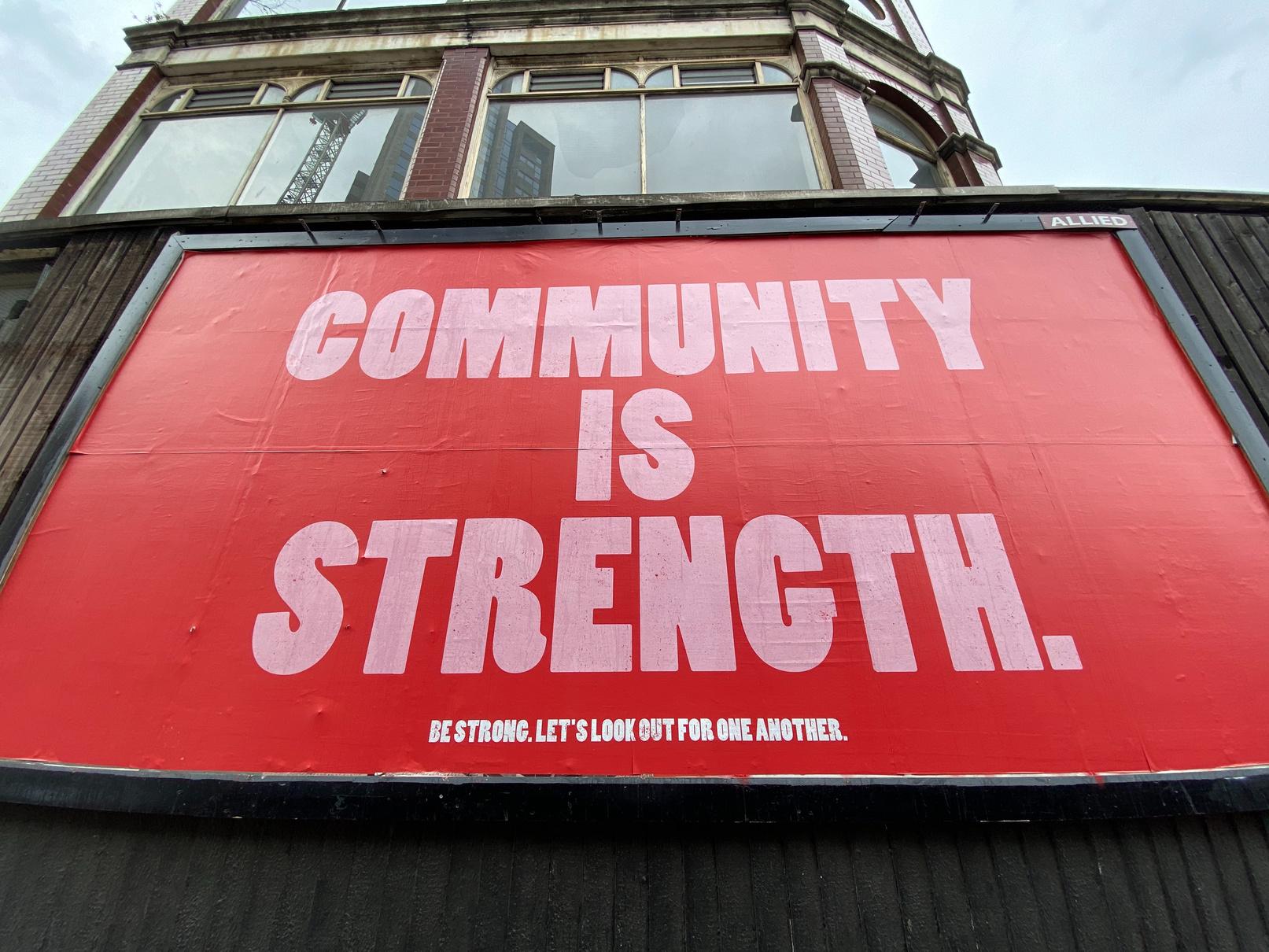
This work does not end here This is the beginning of our community coming together to share their stories, brilliance, and imagine what we want for birth justice in King County. At Surge Reproductive Justice, we are deeply committed to creating spaces and opportunities for us as Black people to center ourselves and our community. Below are a few of the exciting ways that people can continue to stay involved and build this work.
Beginning 2024 we will be hosting community report back events and discussion circles to learn about the findings and recommendations. Community will have the opportunity to learn about the potential policies and choose which policies(s) SRJ should advance in a policy agenda. In Spring of 2024, there will be an opportunity to participate in a second wave of interviews and small group discussions to share more information on imagining what birth justice looks like for Black birthing people and their families.
We will continue to offer our Leadership Development Trainings throughout the year. These are opportunities to build community and grow our collective analysis on anti-racism and reproductive justice.
We will be creating spaces of joy, celebration, care, and healing for Black birthing people, Black birth workers, and their families.
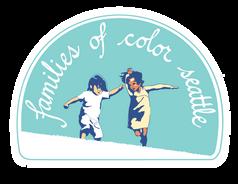


We would like to extend our heartfelt gratitude and appreciation to our funders community partners who played a pivotal role in implementing the Black Perinatal Health Campaign. Their unwavering support and collaboration were instrumental in our recruitment efforts, and we are immensely grateful for their dedication and commitment. Their invaluable contributions have consistently fueled our mission to make a positive impact on the health and well-being of our community
A special shoutout goes to the Black birth workers who actively participated in this campaign. Your expertise, compassion, and tireless efforts allowed us to conduct high-quality interviews with individuals within our community
Throughout the campaign community members consistently expressed a desire for guidance towards community resources that could effectively address their specific needs in Black perinatal health. Recognizing the importance of supporting their requests, we have compiled a list of local community organizations along with their websites that can potentially provide valuable assistance

Please note that this list is not exhaustive and represents only a limited selection of resources. It highlights the urgent need for more community-led organizations to step into this space and offer culturally-relevant services that our people deserve. By expanding the range of community-driven initiatives, we can better address the unique needs of our people and enhance the overall wellbeing during and beyond the perinatal period
Quilted Health - https://www quiltedhealth com

Open Arms Perinatal Services - https://openarmsps.org/
Tacoma Urban League - https://thetacomaurbanleague.org/
Tacoma-Pierce County Health Department Black Infant Health Program - https://www.tpchd.org/healthy-people/familyhealth/black-infant-health-health-ministers


Global Perinatal Health Services -

https://www.globalperinatal.org/
West Side Baby - https://westsidebaby.org/
Shades of Divinity - https://www.shadesofdivinity.org/

BLKBRY - https://blkbry.com/about-blkbry


Being The Village - https://www.beingthevillage.com/
Therapy Fund Foundation - https://therapyfundfoundation.org/

Families of Color Seattle - https://www.focseattle.org/
NOTE: These community resources are provided for informational purposes only and are not endorsed by Surge Reproductive Justice. The inclusion of these resources does not imply any form of endorsement or guarantee of their quality, accessibility, or suitability for your specific needs

